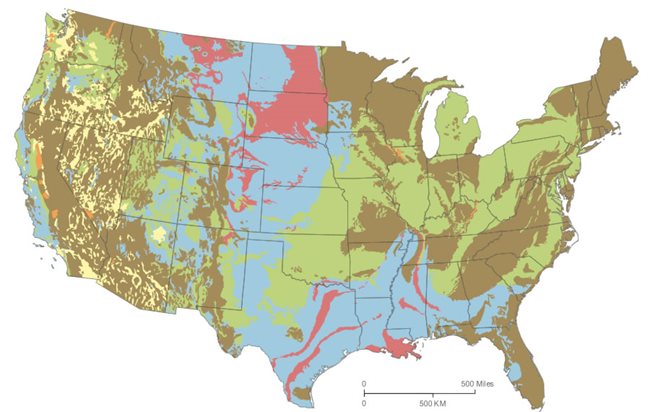- Foundation Repair Home
- Foundation Repair Cost: What are the variables?
- Does Insurance Cover Foundation Repair?
- Foundation Cracks
- Methods of Repair
- Piering: Fixing your home's issues
- Slabjacking: What is slabjacking?
- Related Information:
- Concrete repair: Repair methods and troubleshooting basics
- Read more about foundation information on FoundationRepairNetwork.com
- Houston Foundation Issues: Answers to common questions about foundation problems in Houston
Section Sponsor
Foundation Repair Near Me
How Expansive Soils Can Lead to Foundation Problems
Take the pressure off your foundation walls by following these strategiesExpansive soils, which have high contents of absorptive clay, can really put the squeeze on concrete foundation walls. These soils swell when they get wet, with increases in volume of 10% or more. That’s enough pressure to crack concrete foundation walls and floor slabs and even cause foundation movement, resulting in damage to the upper floors of a home or building. To make matters worse, expansive soils also shrink when they dry out. This cycle of shrinkage and swelling puts repeated stress on concrete foundations and can create fissures in the soil that allow water runoff to seep through to basement walls.
What locations have soils high in expansive clay?
Expansive soils are common in certain regions of the country, including the Houston, Texas area, or may be more localized. This map from Geology.com shows areas of the country where expansive soils are most prevalent. The best way to determine if your foundation problems are due to expansive soils is to have your soil analyzed by a testing lab to identify its expansive properties. Even if expansive soils are present, they typically will not cause foundation problems if the moisture content can be stabilized.
What are the signs of soil expansion and shrinkage?
The volume changes experienced by expansive soils can cause serious damage to concrete foundations and floor slabs as well as the rooms above them. Here are the most common signs to look for:
- Cracked or bowed concrete foundation walls
- Cracks in plaster walls, particularly in corners
- Doors and windows that stick
- Cracks in the concrete driveway or garage slab
- Brick veneer that cracks or separates
- Basement water seepage
- Soil pulling away from foundation walls
Tips to limit the amount of damage
Expansive soils cause the greatest damage when there are significant or repeated moisture content changes. Therefore, the best way to limit damage is to maintain a constant moisture level.
In new construction where expansive soil is a concern, pre-wetting the soil before placing the foundation can help to limit further expansion once the foundation is built.
For existing homes, you can control the balance of moisture around the foundation during dry periods by installing foundation landscaping or watering the soil using a soaker hose. This helps to stabilize the movement a foundation experiences when clay soils expand when overly saturated and contract when extremely dry. Learn more about foundation landscaping and watering at LandscapingNetwork.com.
Related reading: What About the Soil?





